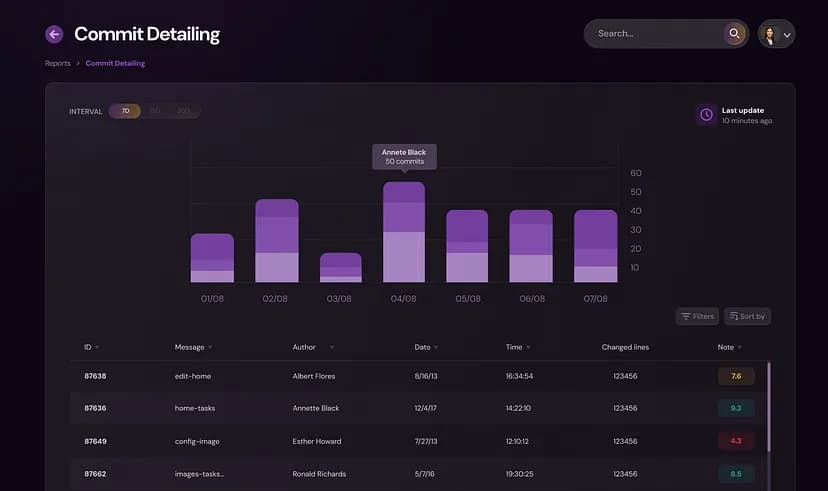What is a Commit?
Imagine you’re managing a construction project. Every day, workers complete certain tasks, like laying down bricks or installing windows. After each task is finished, they report back to you with a note saying, “I’ve completed this part of the project.” This note helps you track progress and ensures that the work is moving in the right direction. In software development, this progress note is called a commit.

A commit is a record of changes made to the code by a developer. It’s a snapshot of what was done at a particular point in time, allowing the team to track each change, understand why it was made, and even go back to previous versions if something goes wrong. Essentially, it’s the developer’s way of saying, “Here’s what I’ve worked on, and this is how it improves or changes the project.”
How Does AI Tech Report (AITR) Help with Commits?
Now, think about your construction project again. Wouldn’t it be useful if every time a worker handed in their progress note, you had an assistant who could immediately evaluate the quality of the work, flag potential issues, and suggest improvements? This is what AITR does for software development.
Here’s how AITR analyzes commits and adds value for your company:
Security Flags: AITR automatically scans the code in the commit to identify any potential security risks. For example, it can detect if there are vulnerabilities that might expose the system to cyberattacks. It’s like your assistant checking if the newly installed windows could be easily broken into.
Insights: AITR provides valuable insights about the commit. It might notice patterns in the code and suggest improvements based on past experiences or best practices. For instance, it could recommend a more efficient way to write the code, much like advising a better method to lay bricks that could speed up construction and reduce future repairs.
Performance Checks: AITR evaluates how the changes in the commit might impact the overall performance of the software. It’s like your assistant warning you that the new materials being used might slow down the project or cause issues later on.
Notes for Improvement: Just as a construction manager might receive suggestions for making certain elements stronger or more durable, AITR offers feedback to the developers on how to improve their code. This could involve simplifying complex sections, optimizing for speed, or ensuring that the code is easier to maintain in the future.
Automatic Code Review: Reviewing every piece of code manually can be time-consuming and prone to error. AITR speeds up this process by automatically reviewing the commit and providing a detailed report on what’s good, what needs improvement, and what might be a risk. It’s like having a quality control team that instantly evaluates every step of your construction project.
Why This Matters to You as a Manager
As a manager, you may not be involved in the technical details of software development, but the quality and efficiency of that work directly impact your project’s success. AITR ensures that every commit is evaluated quickly and thoroughly, minimizing risks, improving security, and helping the team work smarter, not harder. This means fewer bugs, less downtime, and more efficient delivery of features — all crucial for meeting deadlines and staying on budget.
In short, AITR turns every commit into an opportunity for improvement, making sure your project is safe, efficient, and always moving in the right direction.
